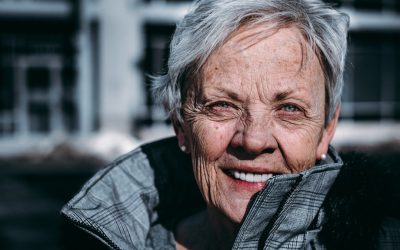Aging is a natural process that everyone goes through. As we age, our bodies undergo various physical and cognitive changes that can impact our overall health and well-being. It is important to understand the complexities of aging in order to better support and care for older adults. This article will explore the physical changes in the body as we age, the effects of aging on cognitive functioning, mental health challenges faced by older adults, the importance of exercise and diet in aging well, preventing chronic diseases in older age, maintaining social connections for better health outcomes, coping with loss and grief in later life, strategies for managing stress and anxiety in older age, and the role of technology in promoting health and well-being in old age.
Key Takeaways
- Aging can have a significant impact on health and well-being.
- Physical changes in the body, such as decreased muscle mass and bone density, are common as we age.
- Cognitive functioning may decline with age, but there are strategies to maintain mental sharpness.
- Mental health challenges, such as depression and anxiety, are common among older adults.
- Exercise and a healthy diet are important for aging well and preventing chronic diseases.
Physical Changes in the Body as We Age
As we age, our bodies undergo various physical changes. Our skin becomes thinner and less elastic, making it more prone to wrinkles and sagging. Our hair may turn gray or thin out. Our bones become less dense, making us more susceptible to fractures. Our muscles also lose strength and flexibility, which can lead to decreased mobility and balance.
These physical changes can have a significant impact on our overall health and well-being. For example, decreased muscle strength and flexibility can increase the risk of falls and injuries. Thinning skin can make us more susceptible to cuts and bruises. Decreased bone density can lead to osteoporosis, a condition characterized by weak and brittle bones.
It is important to understand these physical changes in order to take proactive steps to maintain our health as we age. Regular exercise can help improve muscle strength and flexibility, while a healthy diet rich in calcium and vitamin D can help maintain bone density. It is also important to protect our skin from sun damage by wearing sunscreen and protective clothing.
The Effects of Aging on Cognitive Functioning
Cognitive functioning refers to our ability to think, reason, remember, and make decisions. As we age, our cognitive functioning naturally declines. We may experience difficulties with memory, attention, and problem-solving. It may take longer for us to process information and make decisions.
These changes in cognitive functioning can have a significant impact on our daily lives. For example, we may have trouble remembering appointments or names of people we have just met. We may struggle with multitasking or learning new skills. These changes can be frustrating and can lead to a decrease in confidence and self-esteem.
It is important to understand that these changes are a normal part of the aging process and not necessarily indicative of a more serious cognitive impairment, such as dementia. However, it is still important to take steps to maintain cognitive health as we age. Engaging in mentally stimulating activities, such as puzzles or reading, can help keep our minds sharp. Regular exercise and a healthy diet can also support brain health.
Mental Health Challenges Faced by Older Adults
Older adults face unique mental health challenges that are often overlooked or misunderstood. Depression and anxiety are common among older adults, but they are often underdiagnosed and undertreated. Older adults may also experience loneliness and social isolation, which can have a significant impact on their mental health.
It is important to increase awareness and support for mental health in older age. Healthcare providers should be trained to recognize the signs of mental health issues in older adults and provide appropriate treatment and support. Community programs and resources should be available to help older adults combat loneliness and social isolation.
The Importance of Exercise and Diet in Aging Well
Exercise and diet play a crucial role in promoting healthy aging. Regular exercise can help improve cardiovascular health, maintain muscle strength and flexibility, and reduce the risk of chronic diseases such as heart disease, diabetes, and certain types of cancer. A healthy diet rich in fruits, vegetables, whole grains, lean proteins, and healthy fats can provide the necessary nutrients for optimal health and well-being.
Exercise and diet can also have a positive impact on cognitive health. Regular physical activity has been shown to improve memory, attention, and problem-solving skills. A healthy diet can support brain health and reduce the risk of cognitive decline.
It is important to incorporate regular exercise and a healthy diet into our daily lives as we age. This can be as simple as going for a walk, taking a yoga class, or preparing nutritious meals at home. Small changes can make a big difference in our overall health and well-being.
Preventing Chronic Diseases in Older Age

Chronic diseases such as heart disease, diabetes, and certain types of cancer become more common as we age. These diseases can have a significant impact on our quality of life and can lead to disability and premature death. However, many chronic diseases can be prevented or managed through lifestyle changes.
Regular exercise and a healthy diet are key in preventing chronic diseases. Exercise helps maintain a healthy weight, reduce blood pressure, improve cholesterol levels, and control blood sugar levels. A healthy diet can help prevent obesity, lower cholesterol levels, and reduce the risk of heart disease and certain types of cancer.
It is also important to avoid smoking and limit alcohol consumption in order to prevent chronic diseases. Smoking is a major risk factor for heart disease, stroke, lung cancer, and other chronic diseases. Excessive alcohol consumption can lead to liver disease, certain types of cancer, and other health problems.
Maintaining Social Connections for Better Health Outcomes
Social connections play a crucial role in promoting health and well-being in older age. Loneliness and social isolation are common among older adults and can have a significant impact on their physical and mental health. Research has shown that social isolation is associated with an increased risk of chronic diseases, cognitive decline, depression, and premature death.
It is important to maintain social connections as we age. This can be done through participating in social activities, joining clubs or organizations, volunteering, or staying connected with family and friends. Technology can also be a useful tool for maintaining social connections, especially for older adults who may have limited mobility or live in remote areas.
Coping with Loss and Grief in Later Life
Loss and grief are a natural part of life, but they can be particularly challenging in later life. Older adults may experience the loss of a spouse, friends, or family members. They may also experience the loss of independence or physical abilities. Coping with these losses can be difficult and can have a significant impact on mental health.
It is important to acknowledge and validate the feelings of grief and loss in older adults. Providing support and resources for coping with grief can help older adults navigate this challenging time. Support groups, counseling, and therapy can be beneficial for those experiencing grief and loss.
Strategies for Managing Stress and Anxiety in Older Age
Stress and anxiety are common in older age and can have a significant impact on health and well-being. Chronic stress has been linked to an increased risk of chronic diseases, cognitive decline, depression, and other mental health issues. It is important to manage stress and anxiety in order to maintain optimal health.
There are several strategies that can help manage stress and anxiety in older age. Engaging in relaxation techniques such as deep breathing exercises, meditation, or yoga can help reduce stress levels. Engaging in enjoyable activities such as hobbies or spending time with loved ones can also help reduce stress.
It is also important to seek support when needed. Talking to a trusted friend or family member, joining a support group, or seeking professional help can provide valuable support and guidance in managing stress and anxiety.
The Role of Technology in Promoting Health and Well-Being in Old Age
Technology has the potential to greatly improve the health and well-being of older adults. There are many technologies available that can help older adults manage their health, stay connected with loved ones, and access information and resources.
For example, wearable devices such as fitness trackers can help older adults monitor their physical activity levels and track their progress towards health goals. Telehealth services allow older adults to access healthcare professionals remotely, reducing the need for in-person visits. Social media platforms and video calling apps can help older adults stay connected with family and friends, even if they are unable to see them in person.
It is important to ensure that older adults have access to and are comfortable using technology. Providing training and support can help older adults navigate the digital world and take advantage of the benefits that technology has to offer.
Understanding the complexities of aging is crucial in order to better support and care for older adults. Aging is a natural process that brings about various physical and cognitive changes. It is important to be aware of these changes and take proactive steps to maintain our health as we age.
Regular exercise, a healthy diet, maintaining social connections, managing stress and anxiety, and utilizing technology can all play a role in promoting health and well-being in old age. It is important to prioritize these aspects of healthy aging and provide support and resources for older adults to do so.
By increasing awareness and support for healthy aging, we can ensure that older adults are able to live their lives to the fullest and maintain optimal health and well-being. It is never too late to start prioritizing our health, and with the right knowledge and support, we can age well.
If you’re interested in learning more about how aging affects physical and mental health, you may also find this article on in-home care in North Carolina to be insightful. It explores a compassionate approach to aging and highlights the importance of providing personalized care for seniors in the comfort of their own homes. With services like home health services, individuals can receive the support they need to maintain their physical and mental well-being as they age. For more information, check out the article here.






0 Comments